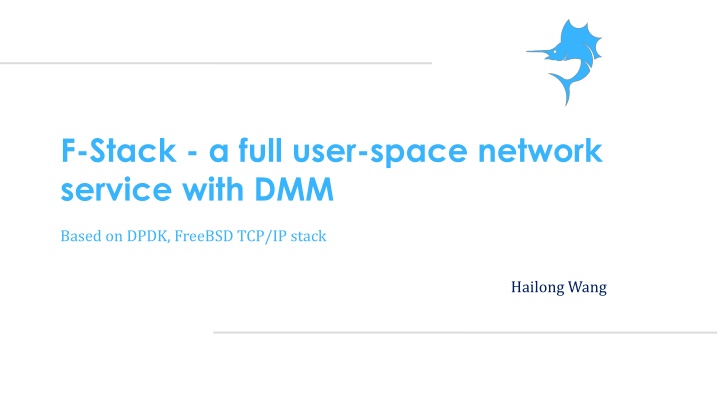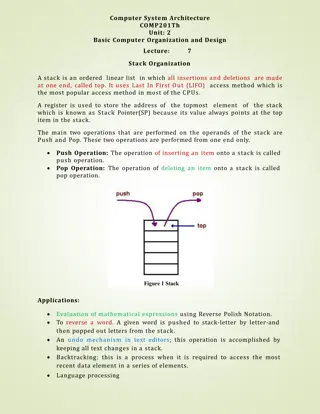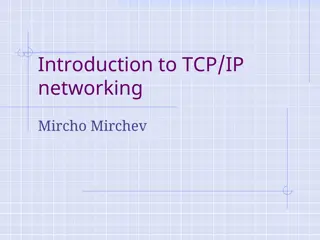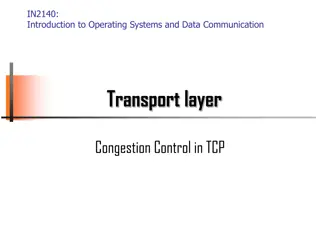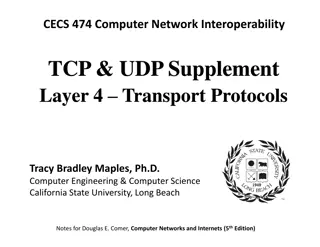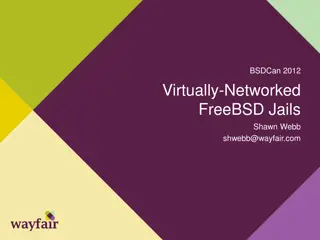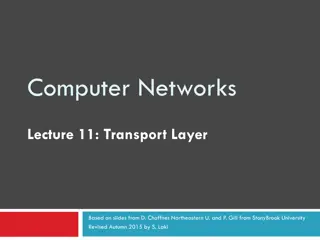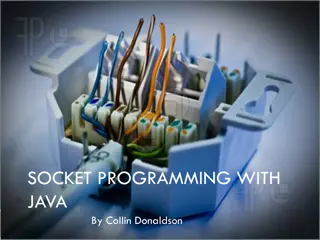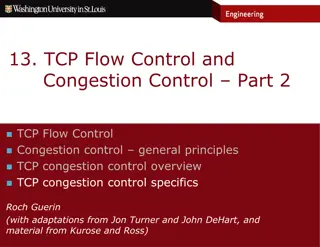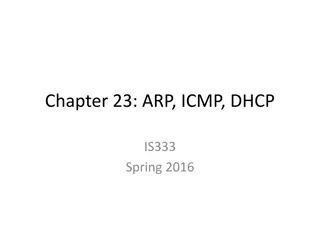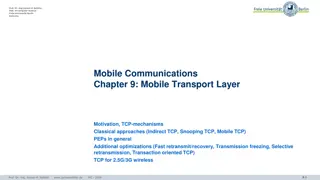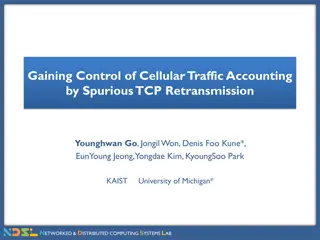Optimizing User-Space Network Services with F-Stack and FreeBSD TCP/IP Stack
F-Stack, a user-space network service using DPDK and FreeBSD TCP/IP stack, addresses challenges in handling service traffic like CDN and live streaming. By leveraging 25GbE, 40GbE, and 100GbE NICs, coupled with multi-core CPUs and kernel bypass techniques, F-Stack overcomes bottlenecks between user and kernel space, enhancing data service performance and scalability. The solution involves bypassing kernel threads, prioritizing processes, and segregating control and data planes. F-Stack offers an API similar to POSIX, shared-nothing architecture for linear scalability, and features zero copy, no context switch, and more. The choice of FreeBSD's TCP/IP stack over Linux is explained by its stable and production-ready nature, advantageous functionalities, and simpler logic.
Download Presentation

Please find below an Image/Link to download the presentation.
The content on the website is provided AS IS for your information and personal use only. It may not be sold, licensed, or shared on other websites without obtaining consent from the author.If you encounter any issues during the download, it is possible that the publisher has removed the file from their server.
You are allowed to download the files provided on this website for personal or commercial use, subject to the condition that they are used lawfully. All files are the property of their respective owners.
The content on the website is provided AS IS for your information and personal use only. It may not be sold, licensed, or shared on other websites without obtaining consent from the author.
E N D
Presentation Transcript
F-Stack - a full user-space network service with DMM Based on DPDK, FreeBSD TCP/IP stack Hailong Wang
Explosive growth of data services Challenges service traffic:CDN,live streaming(RTMP),etc. DDoS, CC Solution NIC: 25GbE 40GbE 100GbE CPU: 24Cores 48Cores 56Cores L2/L3: Kernel bapass(DPDK) L4/L7:
The problem - Kernel Thread0 Thread1 Thread2 Thread3 Thread4 Thread5 User space Kernel space CPU cores(NUMA) NIC queues
The solution - Kernel Bypass Process3 Process2 Process0 Process1 Kernel space User space Control plane Data plane
What does F-Stack do APP SDK Posix-like API FreeBSD TCP/IP stack DPDK
The characteristics of F-Stack Full user-space No context switch Zero copy No hirqs and sirqs APP SDK Posix-like API Shared-nothing architecture Linear scalability No schedule No lock No cache locality miss FreeBSD TCP/IP stack DPDK
Why FreeBSD Why full TCP/IP stack Advantageous functional, production ready stack. Stable. Network tools. Why not Linux ? Complicated logic. GPL.
TCP/IP stack on Linux write send read recv sock_sendmsg sock_recvmsg ip_output tcp_sendmsg tcp_recestablished tcp_recvmsg ip_finish_output tcp_push tcp_v4_recv tcp_v4_do_recv tcp_write_xmit dev_queue_xmit ip_recv ip_local_deliver tcp_transmit_skb netif_rx netif_recv_skb ip_queue_xmit
TCP/IP stack on FreeBSD read writev recvmsg readv recvfrom write sendmsg sendto soreceive sosend tcp_input tcp_outpt ip_input ip_output ether_demux ether_output ether_input
User space FreeBSD TCP/IP stack mtx rw rm sx cond phymem uma_page_slab uma kmem_malloc malloc malloc phymem uma_page_slab uma kmem_malloc kernel,irq threading sched wakeup sleep sleep kernel,irq threading sched wakeup timecounter ticks hz timer timer timecounter ticks hz remove & replace hijack replace remove rte_timer ticks timecounter mmap/malloc (rte_mempool/rte_ malloc) polling empty macro clock locks schedule memory
Posix-like api and network tools sysctl ff_socket ff_read ff_write ff_init(argc, argv) ifconfig route ff_kqueue ff_kevent ff_epoll_ctl ff_epoll_wait ipfw ff_run(loop, arg); arp top etc.. F-Stack Lib
Application Cases Load Balance 4 layer: ipfw/nat 7 layer: nginx Web Server epoll-based http server: httpdns nginx: live streaming(rtmp). WAF nginx+lua/openresty SCTP
Limitations Multi-process architecture, not suitable for multi- thread. Should modify the application's source code. Can not be used for multiple apps Not suitable for heavy logic.
Integrate with DMM Plug-in interface module init Multiple deploy type run-to-completion pipe-line F-Stack with DMM more easier to use more scenarios
F-Stack with DMM app1 app2 app3 app..n DMM socket compatible layer F-Stack freebsd- stack dpdk-if- interface freebsd- stack stack.n stack1 DMM hardware adapter layer
Resources https://github.com/f-stack
